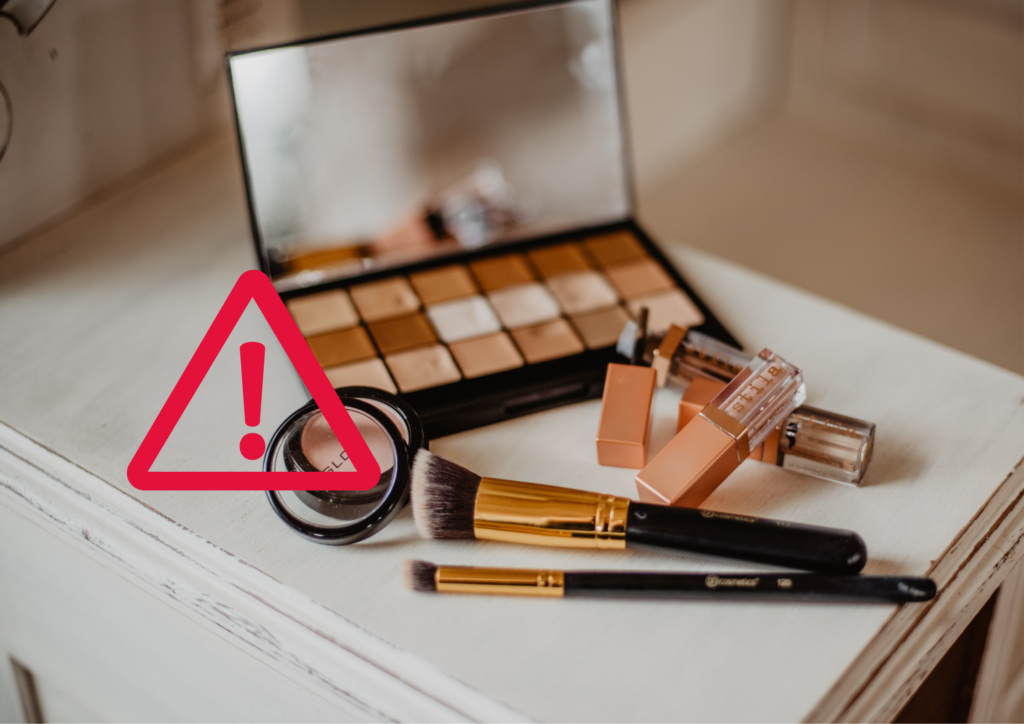
Anomalies in 86% of cosmetics controlled by the DGCCRF
Since 2017, the DGCCRF has been conducting annual checks on cosmetic products containing or likely to contain nanos. The results of the analyses carried out for the year 2021, of which a summary has been published today, once again highlight a considerable proportion of anomalies concerning nanomaterials in cosmetics: out of the 44 cosmetics inspected, 86% showed anomalies, whether they were unauthorized, unlabeled or undersized nanomaterials:
- All makeup products had at least one non-compliance: 18 had unauthorized nanomaterials, and 3 had silica [nano] authorized but not labeled as such;
- Of the 13 sunscreen products sampled, only one complied with the provisions for the presence of nanomaterials. 3 sunscreens did not meet the regulatory minimum median size criteria (30 nm).
- Of the other 11 types of cosmetics checked, 6 (face balm, eye and lip cream, toothpaste, body lotion, dry shampoo and dermatological bar) contained unauthorized nanomaterials or unlabeled silica [nano].
- The 5 raw materials sampled and declared as “non-nano” by the ingredient suppliers were identified as nanomaterials in the analysis.
Note that this high rate is close to that found in 2020 by the DGCCRF and corroborates the analysis of AVICENN which found a non-compliance rate of 100% in the 6 cosmetic products tested in its survey in 2022.
Requests were sent to the companies concerned (as well as to the relevant public authorities when these companies were foreign), in order to bring them into compliance.
The DGCCRF has also asked the professional federations to put together the necessary files for the regularization of the use of dyes present in the form of nanomaterials (titanium dioxide, iron oxides), provided that the evaluation of their risks at the European level can be established.
The absence of a standardized method of analysis of nanomaterials having led to numerous challenges from operators, the DGCCRF asked the Service commun des laboratoires (SCL) to produce a methodological note on the analysis of nanoparticles and the characterization of nanomaterials present in consumer products. This is a highly awaited event for the cosmetics industry.
In 2023, the DGCCRF will continue the controls and monitor the effectiveness of the measures requested in 2022.

Other news on the topic
Our information sheets to go further
Upcoming Nano Agenda
- Introductory seminar on the principles of Life Cycle Assessment (LCA) and its specificities when applied to nanomaterials (metal nanoparticles, oxides, etc.), from their production to their end-of-life.
- Organizer: NaMasTE research group (Manufactured Nanomaterials, Toxicology, Ecotoxicology and Risks: Towards Controlled Development)
- Speaker: Gaetana (Tania) Quaranta, Senior Lecturer, University of Strasbourg – IPHC
- Website: https://gdr-namaste.cnrs.fr/

- Webconference for analysis laboratories, plant fertilizer manufacturers and distributors, public authorities…
- Moderated by David Krupka, nanotechnologies development manager at AFNOR Normalisation and Emilie Langlois-Bertrand, nantechnologies standardization project manager.
- In partnership with Armand Masion (CEREGE) and Patrice Charpentier (ANSES).
- This exchange will also be an opportunity to explore the creation of a national platform to identify standardization needs.
- Website: https://www.afnor.org/evenements/qualite/nanotechnologies-agriculture-cadre-pratique-responsable

- International conference on metallic nano-objects for experts working in the interdisciplinary field of metallic nanoparticles, with a particular emphasis on nanoparticle synthesis and characterization, plasmonics, optics and photonics, catalysis, biomedicine, electronics, and nanoparticle recycling
- Organizers / Partners: CNRS, Bordeaux University, Bordeaux INP, ICMCB, CRPP, CBMN, ISM
- Website: https://mno2026.sciencesconf.org



